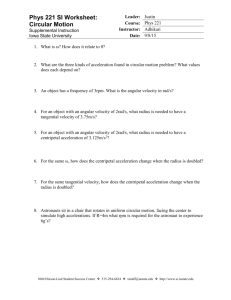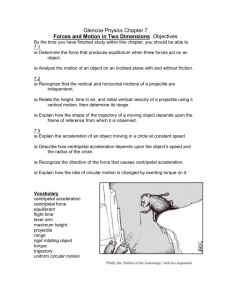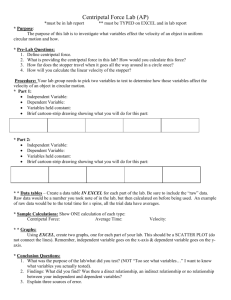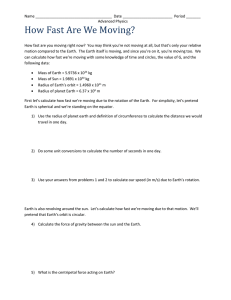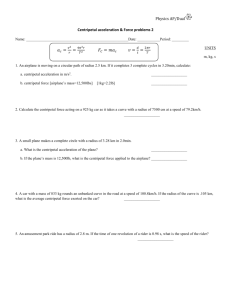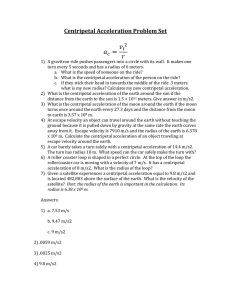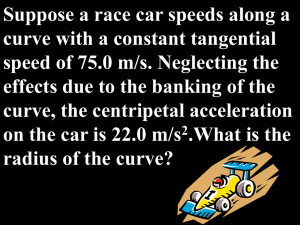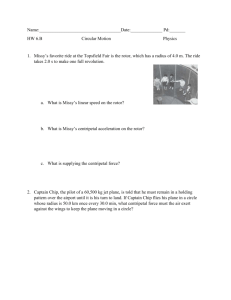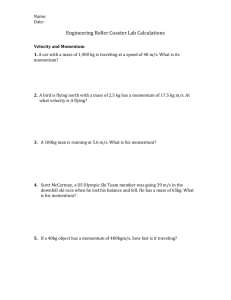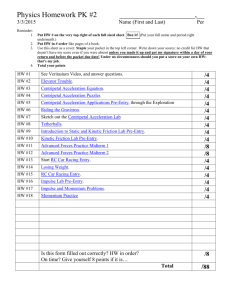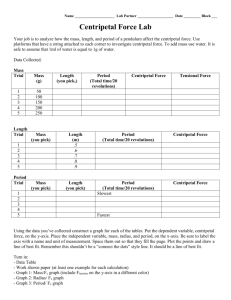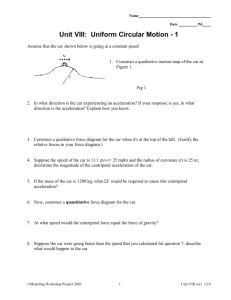Centripetal Force
advertisement
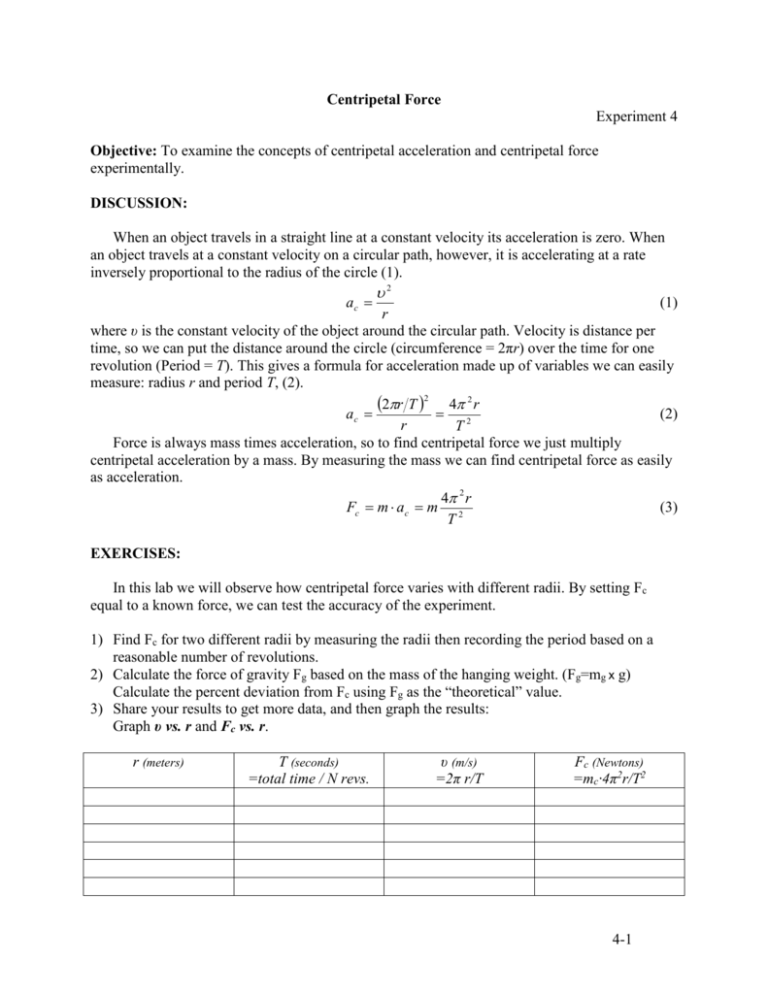
Centripetal Force Experiment 4 Objective: To examine the concepts of centripetal acceleration and centripetal force experimentally. DISCUSSION: When an object travels in a straight line at a constant velocity its acceleration is zero. When an object travels at a constant velocity on a circular path, however, it is accelerating at a rate inversely proportional to the radius of the circle (1). ac 2 (1) r where υ is the constant velocity of the object around the circular path. Velocity is distance per time, so we can put the distance around the circle (circumference = 2πr) over the time for one revolution (Period = T). This gives a formula for acceleration made up of variables we can easily measure: radius r and period T, (2). 2r T 2 4 2 r ac (2) r T2 Force is always mass times acceleration, so to find centripetal force we just multiply centripetal acceleration by a mass. By measuring the mass we can find centripetal force as easily as acceleration. 4 2 r Fc m ac m 2 (3) T EXERCISES: In this lab we will observe how centripetal force varies with different radii. By setting Fc equal to a known force, we can test the accuracy of the experiment. 1) Find Fc for two different radii by measuring the radii then recording the period based on a reasonable number of revolutions. 2) Calculate the force of gravity Fg based on the mass of the hanging weight. (Fg=mg x g) Calculate the percent deviation from Fc using Fg as the “theoretical” value. 3) Share your results to get more data, and then graph the results: Graph υ vs. r and Fc vs. r. r (meters) T (seconds) =total time / N revs. υ (m/s) =2π r/T Fc (Newtons) =mc·4π2r/T2 4-1 mc = ________ (mass of swinging weight) (kg) mg = ________ (mass of hanging weight) (kg) Fg = ________ (mg · 9.8) (kg·m/s2=Newtons) Useful quantities (approximate): π = 3.14159 4π2 = 39.4784 Questions: If the radius increases, how does the centripetal Force change? If the velocity increases, how does the radius change? How fast would you need to spin the mass if you wanted to lift a 0.5kg beer bottle using a radius of 0.2 m? 4-2 4-3 4-4 4-5 4-6
